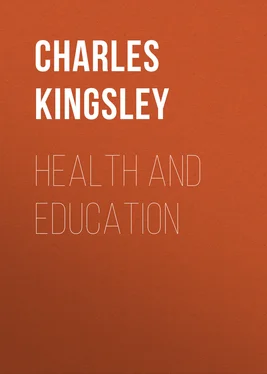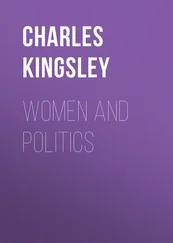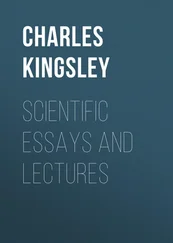Charles Kingsley - Health and Education
Здесь есть возможность читать онлайн «Charles Kingsley - Health and Education» — ознакомительный отрывок электронной книги совершенно бесплатно, а после прочтения отрывка купить полную версию. В некоторых случаях можно слушать аудио, скачать через торрент в формате fb2 и присутствует краткое содержание. Жанр: Медицина, Здоровье, foreign_edu, на английском языке. Описание произведения, (предисловие) а так же отзывы посетителей доступны на портале библиотеки ЛибКат.
- Название:Health and Education
- Автор:
- Жанр:
- Год:неизвестен
- ISBN:нет данных
- Рейтинг книги:4 / 5. Голосов: 1
-
Избранное:Добавить в избранное
- Отзывы:
-
Ваша оценка:
- 80
- 1
- 2
- 3
- 4
- 5
Health and Education: краткое содержание, описание и аннотация
Предлагаем к чтению аннотацию, описание, краткое содержание или предисловие (зависит от того, что написал сам автор книги «Health and Education»). Если вы не нашли необходимую информацию о книге — напишите в комментариях, мы постараемся отыскать её.
Health and Education — читать онлайн ознакомительный отрывок
Ниже представлен текст книги, разбитый по страницам. Система сохранения места последней прочитанной страницы, позволяет с удобством читать онлайн бесплатно книгу «Health and Education», без необходимости каждый раз заново искать на чём Вы остановились. Поставьте закладку, и сможете в любой момент перейти на страницу, на которой закончили чтение.
Интервал:
Закладка:
First, overwork. We all live too fast, and work too hard. “All things are full of labour, man cannot utter it.” In the heavy struggle for existence which goes on all around us, each man is tasked more and more—if he be really worth buying and using—to the utmost of his powers all day long. The weak have to compete on equal terms with the strong; and crave, in consequence, for artificial strength. How we shall stop that I know not, while every man is “making haste to be rich, and piercing himself through with many sorrows, and falling into foolish and hurtful lusts, which drown men in destruction and perdition.” How we shall stop that, I say, I know not. The old prophet may have been right when he said, “Surely it is not of the Lord that the people shall labour in the very fire, and weary themselves for very vanity;” and in some juster, wiser, more sober system of society—somewhat more like the Kingdom of The Father come on earth—it may be that poor human beings will not need to toil so hard, and to keep themselves up to their work by stimulants, but will have time to sit down, and look around them, and think of God, and of God’s quiet universe, with something of quiet in themselves; something of rational leisure, and manful sobriety of mind, as well as of body.
But it seems to me also, that in such a state of society, when—as it was once well put—“every one has stopped running about like rats:”—that those who work hard, whether with muscle or with brain, would not be surrounded, as now, with every circumstance which tempts toward drink; by every circumstance which depresses the vital energies, and leaves them an easy prey to pestilence itself; by bad light, bad air, bad food, bad water, bad smells, bad occupations, which weaken the muscles, cramp the chest, disorder the digestion. Let any rational man, fresh from the country—in which I presume God, having made it, meant all men, more or less, to live—go through the back streets of any city, or through whole districts of the “black countries” of England: and then ask himself—Is it the will of God that His human children should live and toil in such dens, such deserts, such dark places of the earth? Let him ask himself—Can they live and toil there without contracting a probably diseased habit of body; without contracting a certainly dull, weary, sordid habit of mind, which craves for any pleasure, however brutal, to escape from its own stupidity and emptiness? When I run through, by rail, certain parts of the iron-producing country—streets of furnaces, collieries, slag heaps, mud, slop, brick house-rows, smoke, dirt—and that is all; and when I am told, whether truly or falsely, that the main thing which the well-paid and well-fed men of those abominable wastes care for is—good fighting-dogs: I can only answer, that I am not surprised.
I say—as I have said elsewhere, and shall do my best to say again—that the craving for drink and narcotics, especially that engendered in our great cities, is not a disease, but a symptom of disease; of a far deeper disease than any which drunkenness can produce; namely, of the growing degeneracy of a population striving in vain by stimulants and narcotics to fight against those slow poisons with which our greedy barbarism, miscalled civilisation, has surrounded them from the cradle to the grave. I may be answered that the old German, Angle, Dane, drank heavily. I know it: but why did they drink, save for the same reason that the fenman drank, and his wife took opium, at least till the fens were drained? why but to keep off the depressing effects of the malaria of swamps and new clearings, which told on them—who always settled in the lowest grounds—in the shape of fever and ague? Here it may be answered again, that stimulants have been, during the memory of man, the destruction of the Red Indian race in America. I reply boldly, that I do not believe it. There is evidence enough in Jaques Cartier’s ‘Voyages to the Rivers of Canada;’ and evidence more than enough in Strachey’s ‘Travaile in Virginia’—to quote only two authorities out of many—to prove that the Red Indians, when the white man first met with them, were, in North and South alike, a diseased, decaying, and, as all their traditions confess, decreasing race. Such a race would naturally crave for “the water of life,” the “usque-bagh,” or whisky, as we have contracted the old name now. But I should have thought that the white man, by introducing among these poor creatures iron, fire-arms, blankets, and above all horses wherewith to follow the buffalo-herds which they could never follow on foot, must have done ten times more towards keeping them alive, than he has done towards destroying them by giving them the chance of a week’s drunkenness twice a year, when they came in to his forts to sell the skins which, without his gifts, they would never have got.
Such a race would, of course, if wanting vitality, crave for stimulants. But if the stimulants, and not the original want of vitality, combined with morals utterly detestable, and worthy only of the gallows—and here I know what I say, and dare not tell what I know, from eye-witnesses—have been the cause of the Red Indians’ extinction: then how is it, let me ask, that the Irishman and the Scotsman have, often to their great harm, been drinking as much whisky—and usually very bad whisky—not merely twice a year, but as often as they could get it, during the whole “iron age;” and, for aught any one can tell, during the “bronze age,” and the “stone age” before that: and yet are still the most healthy, able, valiant, and prolific races in Europe? Had they drunk less whisky they would, doubtless, have been more healthy, able, valiant, and perhaps even more prolific, than they are now. They show no sign, however, as yet, of going the way of the Red Indian.
But if the craving for stimulants and narcotics is a token of deficient vitality: then the deadliest foe of that craving, and all its miserable results, is surely the Sanatory Reformer; the man who preaches, and—as far as ignorance and vested interests will allow him, procures—for the masses, pure air, pure sunlight, pure water, pure dwelling-houses, pure food. Not merely every fresh drinking-fountain: but every fresh public bath and wash-house, every fresh open space, every fresh growing tree, every fresh open window, every fresh flower in that window—each of these is so much, as the old Persians would have said, conquered for Ormuzd, the god of light and life, out of the dominion of Ahriman, the king of darkness and of death; so much taken from the causes of drunkenness and disease, and added to the causes of sobriety and health.
Meanwhile one thing is clear: that if this present barbarism and anarchy of covetousness, miscalled modern civilisation, were tamed and drilled into something more like a Kingdom of God on earth: then we should not see the reckless and needless multiplication of liquor shops, which disgraces this country now.
As a single instance: in one country parish of nine hundred inhabitants, in which the population has increased only one-ninth in the last fifty years, there are now practically eight public-houses, where fifty years ago there were but two. One, that is, for every hundred and ten—or rather, omitting children, farmers, shopkeepers, gentlemen, and their households, one for every fifty of the inhabitants. In the face of the allurements, often of the basest kind, which these dens offer, the clergyman and the schoolmaster struggle in vain to keep up night-schools and young men’s clubs, and to inculcate habits of providence.
The young labourers over a great part of the south and east, at least, of England,—though never so well off, for several generations, as they are now—are growing up thriftless, shiftless; inferior, it seems to me, to their grandfathers in everything, save that they can usually read and write, and their grandfathers could not; and that they wear smart cheap cloth clothes, instead of their grandfathers’ smock-frocks.
Читать дальшеИнтервал:
Закладка:
Похожие книги на «Health and Education»
Представляем Вашему вниманию похожие книги на «Health and Education» списком для выбора. Мы отобрали схожую по названию и смыслу литературу в надежде предоставить читателям больше вариантов отыскать новые, интересные, ещё непрочитанные произведения.
Обсуждение, отзывы о книге «Health and Education» и просто собственные мнения читателей. Оставьте ваши комментарии, напишите, что Вы думаете о произведении, его смысле или главных героях. Укажите что конкретно понравилось, а что нет, и почему Вы так считаете.












